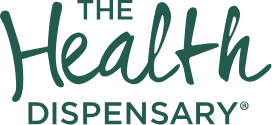Eggs have long been a dietary staple, appearing on breakfast tables around the world. But over the years, they have been the subject of much debate and confusion. Are they good for you? Do they raise cholesterol levels? In this blog, we’ll crack open the myths and reveal the real nutritional benefits of eggs, how they can contribute to self-care, and address the latest trends and misconceptions.
Nutritional Powerhouse
Eggs are often described as nature’s multivitamin, and for a good reason. They are packed with essential nutrients that are beneficial for overall health.
Nutrients in Eggs
A single large egg contains:
- Protein: Approximately 6 grams of high-quality protein, which is essential for muscle repair and growth.
- Vitamins: Including B12 (important for red blood cell formation), B2 (riboflavin), B5 (pantothenic acid), and A (vital for vision and immune function).
- Minerals: Such as phosphorus, selenium, and a small amount of iron.
- Healthy Fats: Eggs contain about 5 grams of fat, of which 1.5 grams are saturated.
- Choline: An essential nutrient important for brain health and liver function.
Health Benefits of Eggs
1. Weight Management
Eggs can help with weight management. High in protein, they increase feelings of fullness, which can help reduce overall calorie intake. A study showed that people who ate eggs for breakfast felt more satisfied and consumed fewer calories throughout the day compared to those who ate a carbohydrate-rich breakfast.
2. Eye Health
Eggs are rich in lutein and zeaxanthin, antioxidants that are beneficial for eye health. These compounds accumulate in the retina, where they help protect against harmful blue light and reduce the risk of cataracts and age-related macular degeneration.
3. Brain Health
Choline, found in eggs, is crucial for brain health. It plays a significant role in memory and cognitive function. Adequate choline intake is especially important during pregnancy and breastfeeding, as it contributes to brain development in infants.
Historic Use in Medicine
Historically, eggs have been used in various cultures for their medicinal properties. In traditional Chinese medicine, eggs were believed to strengthen the body and support recovery from illness. Similarly, in ancient Rome, eggs were used to treat various ailments and were considered a symbol of life and renewal.

Debunking Myths
Myth 1: Eggs Raise Cholesterol Levels
For many years, eggs were shunned due to their cholesterol content. A large egg contains about 186 milligrams of cholesterol, primarily found in the yolk. However, recent research indicates that dietary cholesterol does not significantly impact blood cholesterol levels in most people.
The body compensates for dietary cholesterol by producing less cholesterol in the liver. For the majority of individuals, consuming eggs does not increase the risk of heart disease. However, those with certain genetic conditions, such as familial hypercholesterolemia, should consult their healthcare provider about their egg intake.
Myth 2: Eggs Are Bad for Heart Health
Contrary to this belief, moderate egg consumption (up to one egg per day) does not increase the risk of heart disease in healthy individuals. In fact, eggs contain nutrients like unsaturated fats, which can help improve heart health when they replace saturated fats in the diet.
Myth 3: Raw Eggs Are a Healthy Option
Consuming raw eggs can pose health risks due to the potential presence of Salmonella bacteria, which can cause food poisoning. Cooking eggs thoroughly reduces this risk and also makes the protein more digestible. It’s always safer to enjoy your eggs cooked.
TikTok Trends and Urban Legends
Trend: Cloud Eggs
Cloud eggs, also known as soufflé eggs, became a social media sensation for their fluffy, cloud-like appearance. While they are visually appealing, the nutritional value remains the same as that of regular eggs. Preparing eggs in various ways can make them more enjoyable and may encourage a balanced diet, but the fundamental benefits of eggs stay consistent.
Trend: Drinking Raw Eggs for Protein
Drinking raw eggs has been popularised by athletes in the past and has resurfaced on social media as a quick protein fix. However, this practice is not advisable due to the previously mentioned risk of Salmonella. Additionally, cooking eggs not only eliminates harmful bacteria but also makes the protein easier for your body to absorb.
Incorporating Eggs into Your Diet
Delicious and Nutritious Egg Recipes
1. Classic Scrambled Eggs
A simple yet satisfying breakfast option. Scrambled eggs can be customised with various vegetables and herbs to enhance their nutritional value.
2. Egg Salad
Perfect for a light lunch, egg salad can be enjoyed on whole-grain bread or on top of a bed of greens. Mix in some avocado for an extra dose of healthy fats.
3. Veggie-Packed Omelette
An omelette filled with spinach, tomatoes, and mushrooms makes for a nutrient-dense meal. Pair it with a side of whole-grain toast for a balanced breakfast or lunch.
Self-Care with Eggs
Incorporating eggs into a balanced diet can be a form of self-care. Here’s how:
- Quick and Easy Meals: Eggs cook quickly, making them ideal for busy days when you need a nutritious meal in minutes.
- Versatility: They can be prepared in numerous ways, ensuring that your meals are varied and enjoyable.
- Budget-Friendly: Eggs are an affordable source of high-quality protein and essential nutrients.
Conclusion: Eggs – A Healthy Choice
Eggs are a versatile, nutritious food that can be part of a healthy diet. They are rich in essential nutrients and beneficial for weight management, eye health, and brain function. While it’s important to consume them in moderation and be mindful of any personal health conditions, the benefits of eggs outweigh the myths that have surrounded them for years.
Next time you’re planning your meals, consider incorporating eggs for a tasty, nutritious boost. Whether you’re in Neath, South Wales, or anywhere in the world, eggs can be a valuable addition to your diet, supporting a healthy, happy, and hopeful lifestyle.
Disclaimer: Our blog posts are dispensed to inform and empower. We believe in self-care and support in person at our Neath branches. If you cannot access us, please consult with a healthcare professional before making any changes to your diet or lifestyle.
References:


